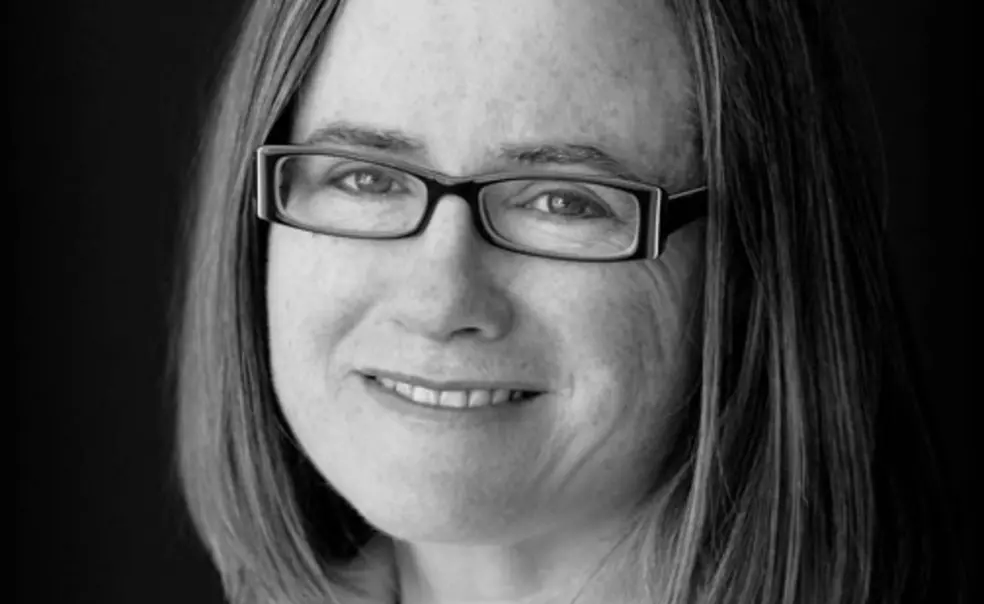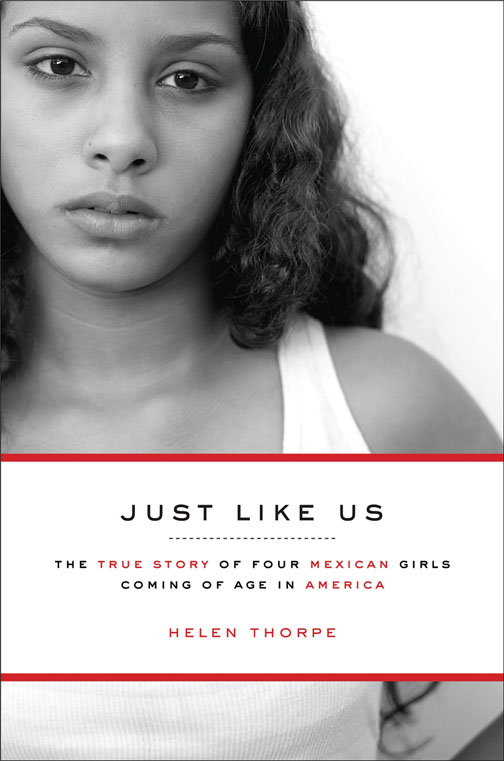Undocumented in the U.S.
Helen Thorpe ’87 traces the lives of four Mexican girls in America
Without legal status in the United States, you can’t get a Social Security card or driver’s license, making it difficult to travel, open a checking account, apply for college scholarships, and land a job. Children of illegal immigrants can pay a heavy price for their parents’ inability to gain legal papers.
Journalist Helen Thorpe ’87 spent five years following four poor, young Mexican women: Clara and Elissa, who are in the country legally (one was born a U.S. citizen and one became a legal resident), and Yadira and Marisela who are undocumented, having entered the country as youngsters. (Thorpe changed their names.) In Just Like Us: The True Story of Four Mexican Girls Coming of Age in America , published by Simon and Schuster in September, Thorpe explores how their legal status affected their daily lives, their futures, and their friendships.
Thorpe, who immigrated with her Irish parents to the United States when she was 1, followed the four ambitious, bright girls from their senior year in a public high school in Denver through four years of college — immersing herself in their cultures and the world of fake IDs. All four have led difficult lives due to poverty, broken families, and identity issues. But Yadira and Marisela faced greater challenges. Without proper identification, they could not apply for financial aid and did not qualify for in-state tuition at public universities.
“It was hard for Marisela and Yadira to see why they should labor over their homework if they were just going to end up working at McDonald’s,” writes Thorpe. Eventually they found private benefactors who paid their way through college. Yadira had perhaps the toughest time. During college her mother was charged with a felony for having purchased stolen identity papers and fled to Mexico, leaving Yadira — whose father had left the family when she was 7 — to look after her two younger sisters.
The difference in the girls’ legal status had a “divisive, chilling effect” on their friendship, Thorpe says. Without the same opportunities as their friends, Yadira and Marisela “felt that they were going to be left behind.”
Woven throughout their stories is the swirling political debate over immigration reform. Just Like Us raises many questions about immigration law, but offers no clear answers. Thorpe’s purpose in writing the book was to tell their stories, not come up with policy solutions.
After college, Clara landed a job with the Denver Scholarship Fund and Elissa headed to graduate school to become a teacher. Marisela and Yadira worked at a nonprofit organization whose boss turned a blind eye to their lack of papers. But Marisela has put off applying to law school because she is unsure of how to pay for it. And Yadira has postponed her plan to become a teacher, because she cannot be hired without a Social Security card.














No responses yet